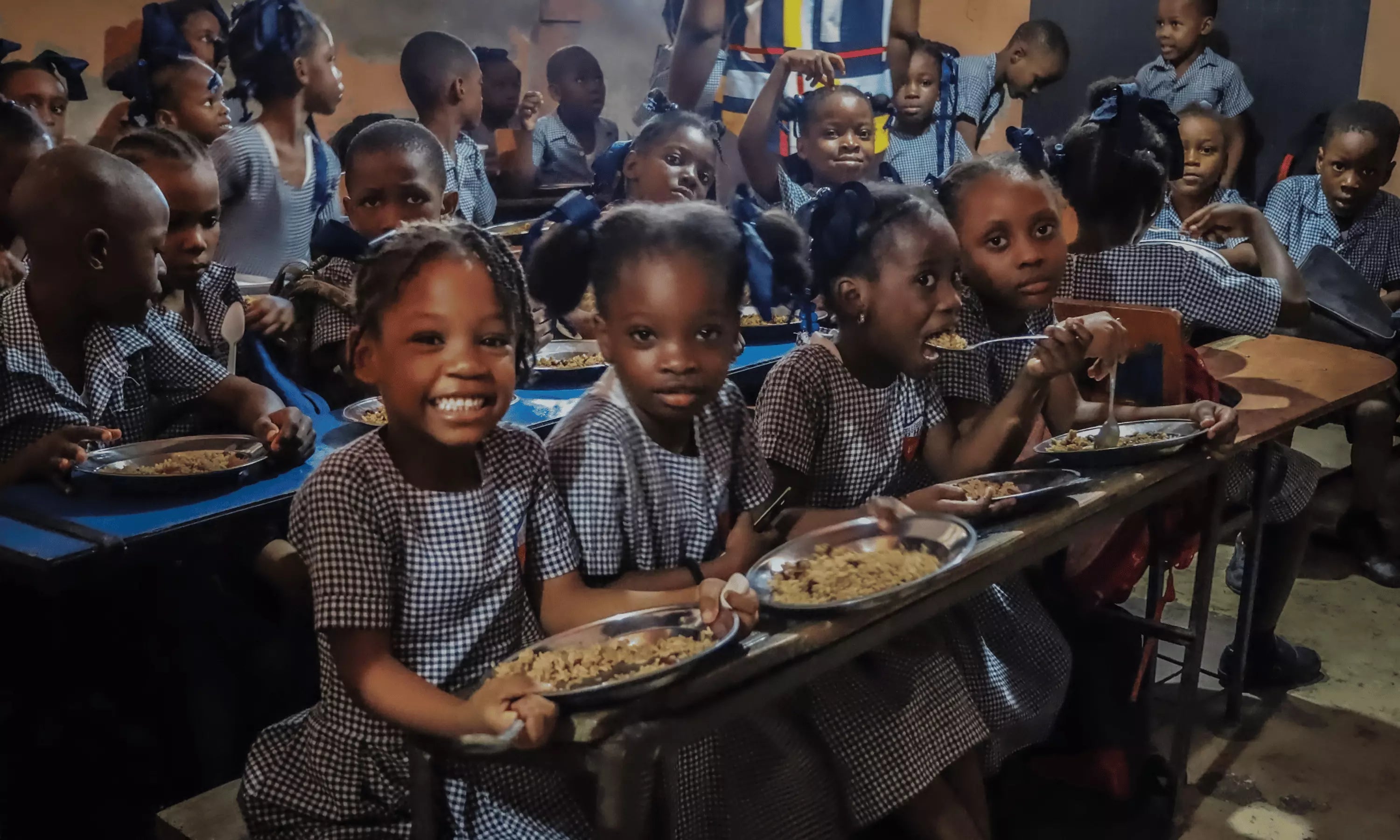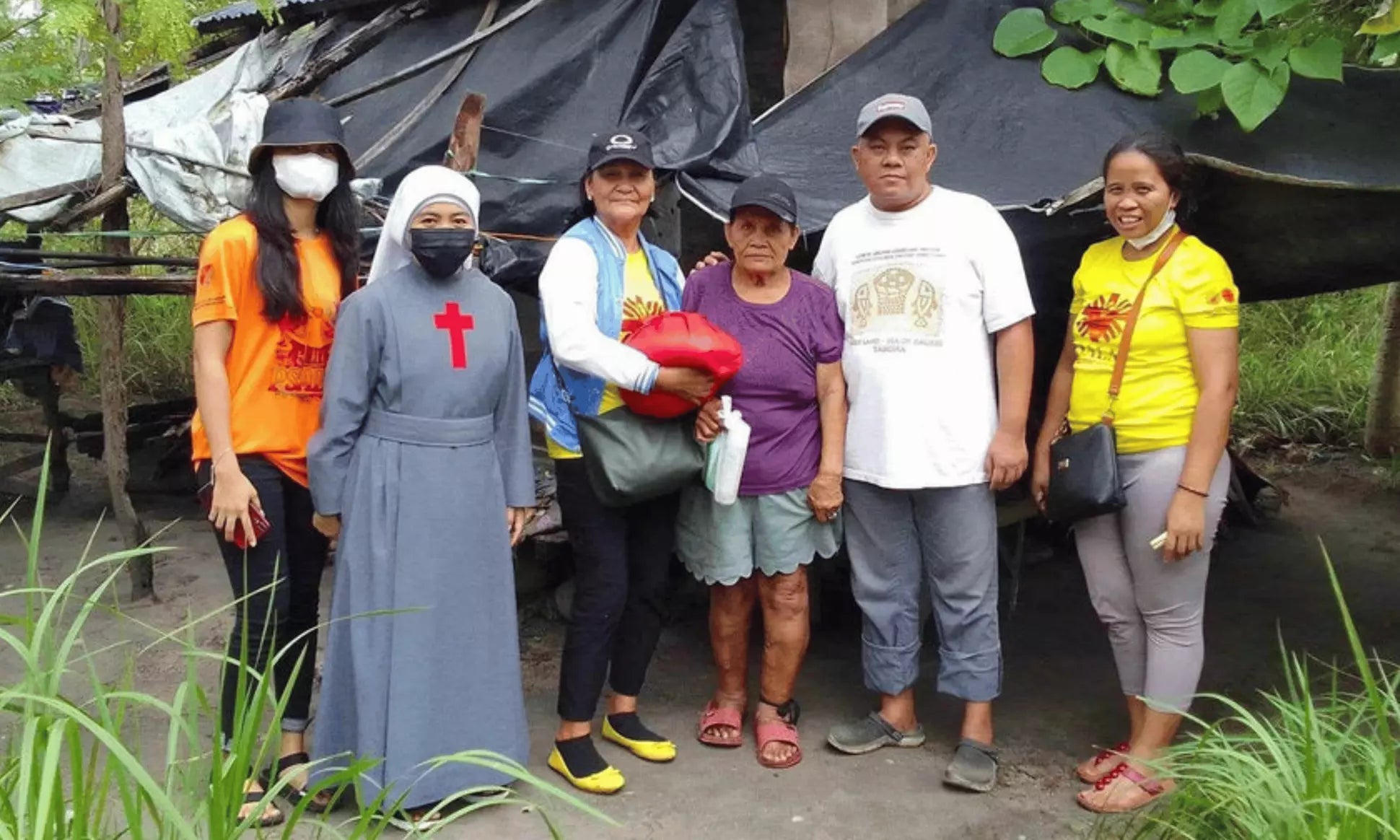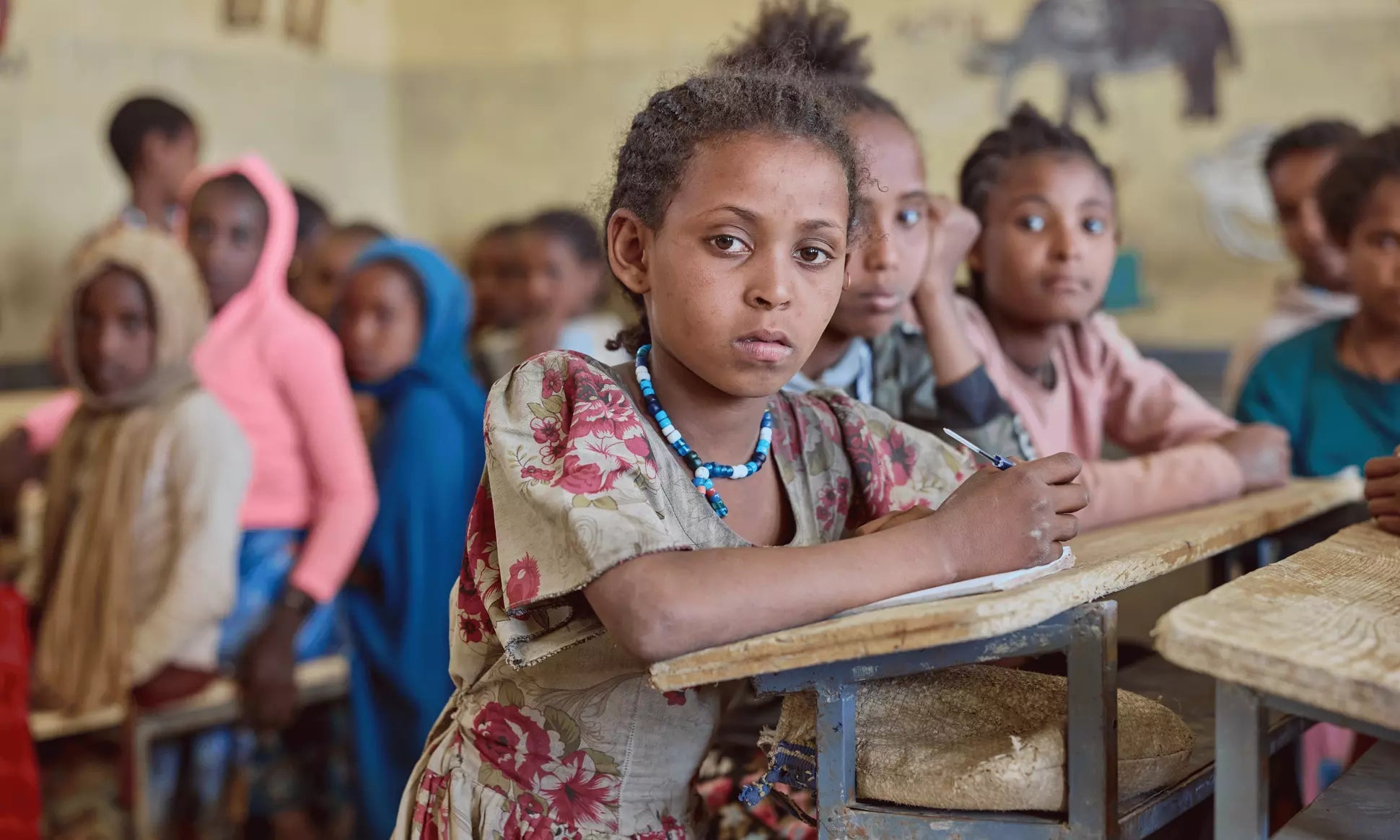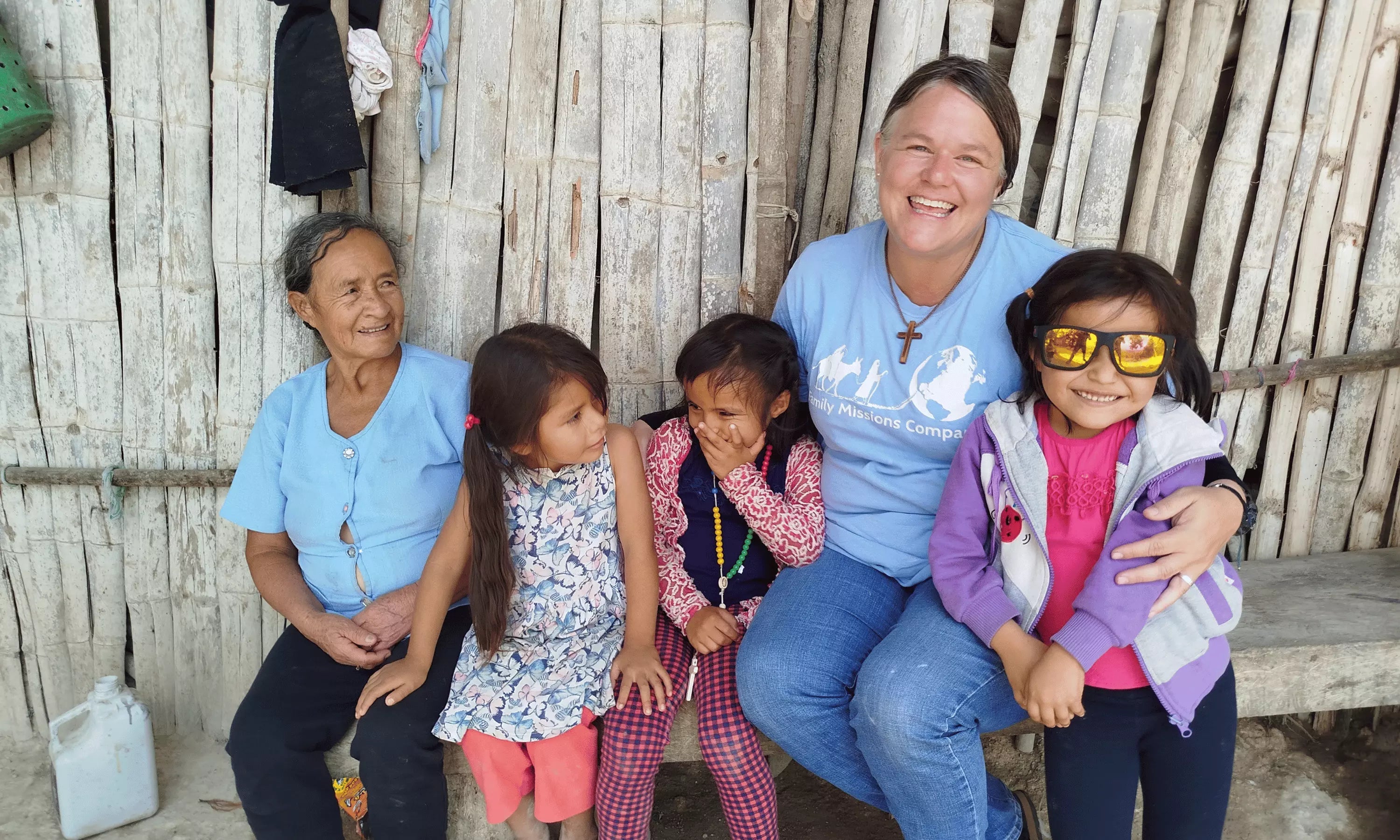Crisis in Ethiopia and One Child’s Testimony
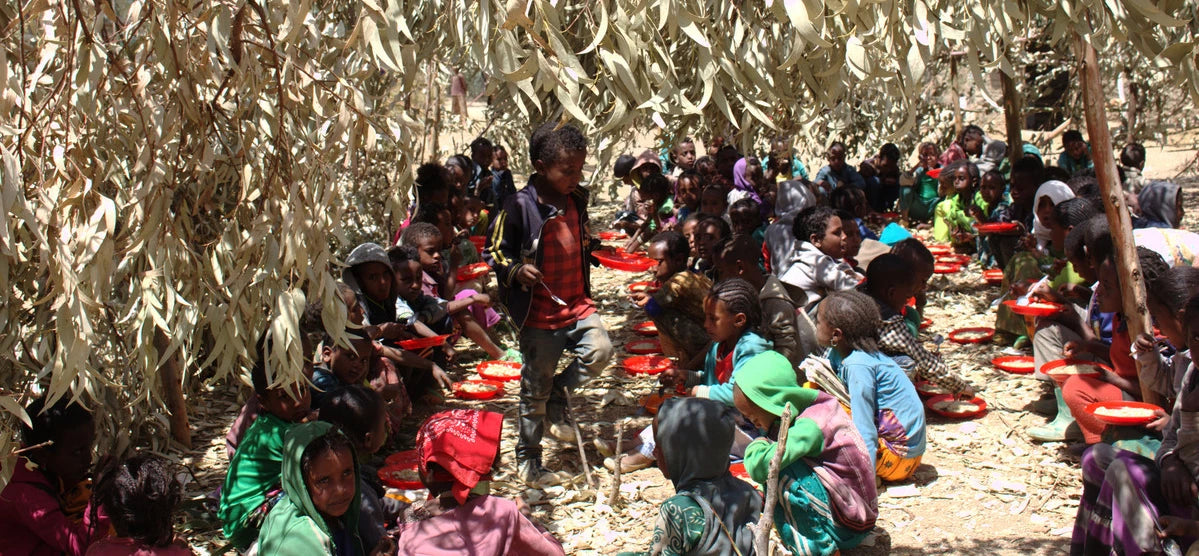
For the month of March, Mary’s Meals in Ethiopia will be getting 10% of all your purchases and we think you’ll agree with us that they need immediate support to help protect the lives and futures of children in Tigray.
The current situation in Ethiopia is dire. A combination of drought, displacement, and brutal conflict has left huge areas of the country in crisis. Tigray, where Mary’s Meals works, is one of the worst affected. The two-year civil war has caused widespread destruction and left physical and mental scars on people including millions of children – many of whom have missed years of schooling.
For many months, colleagues from a local partner organization have been sharing harrowing reports about the experiences of those in the communities they are supporting. Having lived through the atrocities of the war, millions of Ethiopians are now facing crisis levels of food insecurity and hunger. In fact, most of Tigray is currently classified as having “emergency” levels of acute food insecurity.
Effects of Civil War
War rages on in Tigray, Ethiopia, and much of the world remains unaware. The stories Mary’s Meals is hearing from their partners about what people have gone through since the conflict began last November are nothing short of horrific. But with communication channels only partially open and much of the country still in ‘blackout’, global media remains largely silent.
Service teams, who have dedicated their lives to working with communities in Tigray, are traumatized and overwhelmed by the suffering they are now witnessing. They say this is being allowed to happen because the information flow out of Tigray has been deliberately cut off – internet access is almost entirely shut off across the whole region.
There are many thousands of people living in cramped, squalid conditions having fled their homes to escape extreme violence.
“Nearly every house in Tigray has been attacked,” a Mary’s Meals’ partner confirmed. “People are killed. People from different parts of Tigray flee ... to relatively safe places. So, over 60,000 crossed to Sudan and over one million IDPs are in the region, out of which 152,000 are in Mekelle town.”
Working with their partners, Mary’s Meals is currently providing vital food parcels and other essential items to around 19,000 internally displaced people (IDPs) in schools that have had to turn into shelters in Tigray’s capital, Mekelle, and living among the community in Maychew, to the south.
“The hosting communities in Mekelle – even though they are victims of war and have not enough for themselves – they kindly share whatever little they have, but their contribution is a drop in the ocean. So, people are in need of food aid.”
Such conditions, with inadequate sanitation, are a serious threat to health and while health services are barely functioning, a serious threat to life. And all this is being endured by those who have already experienced unimaginable suffering.
Ethiopian Children’s Condition

The war has undone years of progress in Tigray’s education system and the impact of millions of children missing years of learning is sure to be huge. There is an urgent dual priority – ensuring that children in Tigray don’t starve and boosting their chances of engaging with education again.
“Those who are in the schools don't have enough space,” reports Mary’s Meals’ partner. “For example, in one of the schools there are about 6,000 IDPs and over 80 sleep in a small classroom.”
In recent months, many children have been able to return to school – often in bullet-riddled buildings with little or no equipment. After replacing cooking equipment that was destroyed or looted during the conflict, Mary’s Meals has now fully reinstated the school feeding program across Tigray in all the areas where they were serving before the civil war put a stop to all classes. However, there is a desperate and growing need among many more children in Tigray for consistent meals and the chance to learn.
One Boy’s Testimony
In Ethiopia, displaced 15-year-old teenager, Nohe, tells of his emotional journey from fleeing the outbreak of war in Tigray to becoming captain of his displacement camp football team.
Before conflict erupted in Nohe’s town, the 15-year-old was in the 7th grade, living with his parents and two younger sisters. He says: “On May 17, 2021, war broke out and I fled with my friends and many other children and adults in our village. But, when we came back, we were arrested, beaten and interrogated. I saw men wearing soldiers’ uniforms shooting at people in the street. I saw the bodies of my friends laying in the football playground where we used to play.”
Fleeing for his life, Nohe undertook the hard crossing to a city he’d never been to. He says: “I decided to go to Mekelle, a town I knew only by name and where I had no relatives. My only reason being to stay as far away as possible from my home village, where I lost my friends.”
Living alone at the IDP (Internally Displaced Persons) center since the end of May, Nohe is not alone in his harrowing journey –there are tens of thousands of children in the IDP camps in Mekelle– yet he feels lonely, separated from his family when he needs them most.
He speaks with remarkable honesty about his first few months there: “I always felt lonely and often dreamt about my family at night, panicking and shivering when hearing gun fire or any loud noise. When I looked at other children playing football, I remembered my friends in my home village who lost their lives and I cried.”
Two teachers living at the same camp as Nohe, Mr. Abrhaley and Miss Almaz, spoke of significant improvements and some positive behavioral changes in the war-affected children living there after the emergency programme was put in place. They say Nohe has transformed from a lonely and shy teenager to now interacting with different people and has even become the captain of the center’s football team.
Nohe himself notes the positive change: “At present, I have made so many friends, not only from the IDP center, but also with children outside. And now as a captain of our football team, I lead my teammates during training sessions and competitions with harmony and good understanding. When I remember my family and my friends and feel sad, I go to hear music or play with my friends, or I go to a nearby church to pray.”
In Tigray, displaced children face an enormous range of challenges ahead. Running emergency education and feeding programmes provides some comfort and support for the youngsters during the unbelievable hardship and uncertainty of their daily life. Before the current conflict, Mary’s Meals fed 24,320 children across 36 schools in Tigray. Many of the buildings have now been destroyed or turned into temporary shelters. Working quickly to help where possible, a unique emergency education and feeding programme for children, funded by Mary’s Meals and implemented by our partner, Daughters of Charity, has been put in place in 17 camps around Mekelle City.
How You Can Help

It’s easy to feel stunned into inaction or overwhelmed by the horror and sadness in these reports. But your support is helping. Mary’s Meals and their partners are ready to extend the program to more schools, in areas of great need across the region. They hope to work together to reach tens of thousands more children with daily meals in school over the coming weeks and months.
Even in the face of such violence and destitution, Mary’s Meals’ partners tell them that the small acts being carried out by their supporters – by YOU - is raising awareness of this situation. Praying for the people of Tigray and giving money to help bolster the response is making a huge difference:
“With the support we received so far from Mary's Meals, we were able to distribute food for more than 8,000 IDPs in Mekelle and Maychew. We are able to provide a daily meal for more than 11,000 IDPs based in seven IDP schools in Mekelle. And thanks to the generosity of Mary's Meals and everyone involved, this is life-saving work.”
To close with some words from Mary’s Meals’ partner: “I would like to say to the world about this situation: people are hungry, people are starving; 1.4 million children are out of school; vital social services have been broken; people are in a life- threatening condition, in particular people with chronic health problems are dying because the health facilities, are almost not functioning.
“So, I would like to say to the world: please hear and listen attentively to the cries of the suffering people in Tigray, do all you can to stop the war, killing of civilians, forcing people to leave their land, their homes. I would like to say to the world, scale up humanitarian aid and assist people to breathe the air of peace.”


